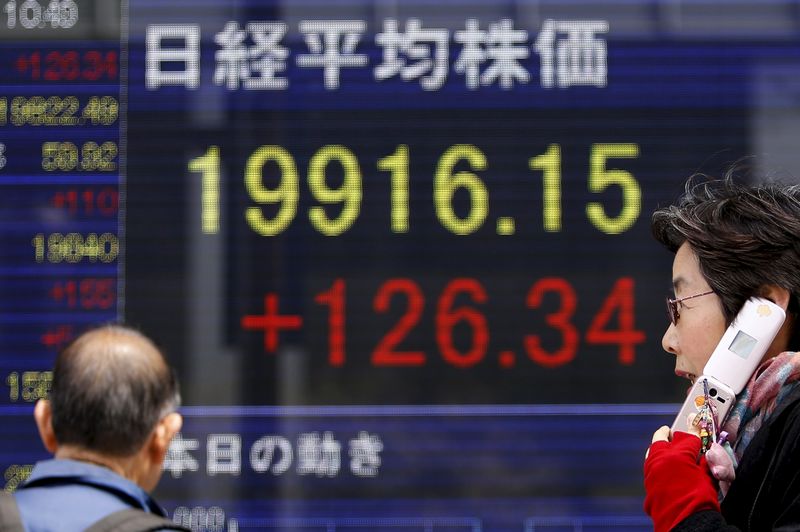This post was originally published on this site
https://i-invdn-com.investing.com/news/LYNXMPEB40170_M.jpg
Investing.com — Most Asian stocks were cautiously higher on Wednesday tracking dovish signals from the Bank of Japan, while Japan’s Nikkei index surged to a near one-month high on the prospect of monetary policy remaining accommodative in the country.
The Nikkei 225 index was the best performer for the day, rising 2.5% to its highest level since late-December. The index was largely buoyed by the BOJ maintaining its current range of yield curve control, ducking market expectations for more widening in the bank’s policy.
The central bank maintained interest rates at record-low levels, and said it will keep policy accommodative for the time being, indicating positive liquidity conditions for local stocks.
Still, the country is also facing a spike in inflation, which in turn has dented economic growth in recent months.
Core machinery orders slipped more than expected in November, indicating that Japanese businesses remained cautious over making long-term capital investments.
Broader Asian stocks were slightly higher on Wednesday, although sentiment remained constrained by growing fears of a potential recession this year.
Several surveys showed this week that economists and business heads were growing increasingly negative over the global economy this year, amid high inflation, tight monetary policy, and continued supply chain disruptions.
A potential recession in major economies is expected to batter risk-heavy Asian markets, given that it will limit the amount of foreign capital being invested into the region.
Markets were also awaiting more cues on the U.S. economy from a string of Federal Reserve speakers and data sets due this week. While the Fed is expected to slow its pace of rate hikes, recent U.S. economic data has indicated slowing growth in the country.
China’s Shanghai Shenzhen CSI 300 and Shanghai Composite indexes moved in a tight range on Wednesday, with focus remaining on the country’s economic reopening and worsening COVID-19 outbreak. But Hong Kong’s Hang Seng index rose 0.3%, buoyed largely by major technology stocks on more signs of easing regulatory scrutiny.
India’s Nifty 50 and BSE Sensex 30 indexes rose about 0.6% each, amid some optimism over slowing inflation in the country, even though economic growth is widely expected to cool in 2023 after outperforming in the prior year.
Philippine stocks were the best performers in Southeast Asia with a 0.6% bounce, while Malaysian stocks slipped 0.4% after data showed the country’s imports and exports deteriorated in December.


